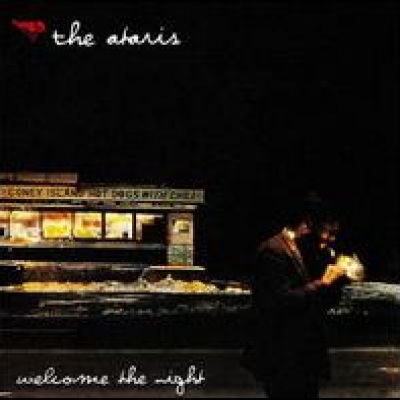
Welcome the Night
by Corey AparThe Ataris couldn't have picked a more appropriate title for their fifth record, Welcome the Night: almost every note sounds as if written at the midnight hour by frontman Kris Roe as he was locked in his apartment alone during a self-imposed exile. The guys parted ways with Columbia following the completion of Night (their long-delayed follow-up to 2003's So Long, Astoria), and wound up creating their own Isola Recordings (with distribution through Sanctuary) to finally bring the album to the light of day. In the meantime, the group inflated to a staggering seven members (including a cellist and pianist), and together the Ataris are now apparently infatuated with their Smiths collections and overall love of lush and moody alternative rock. They are hardly recognizable as the same band documenting Black Flag stickers on Cadillacs just a few short years ago, and the difference is not just in Roe's noticeably richer vocals. Layers of sweeping arrangements and dynamic buildups over lyrics of longing and snapshots of yesterday suggest that the Ataris now need to be seen as serious rock musicians free from the constraints of pop-punk. This is grown-up angst, and the opening "Not Capable of Love" is surprisingly melancholic in its reflections of life and relationships in the years since those doe-eyed beginnings. "I'm not capable of love/That kind of love/That I felt when I was 21," Roe achingly sings wrapped in a dark envelope of yearning. The added depth of instrumentation gives Welcome the Night a lonely sort of warmth that was never really present in the band's prior work, and it's a nice feel. Songs like the nearly hopeful "The Cheyenne Line" and wounded "From the Last, Last Call" -- the latter using light acoustics for reflections through stained glass -- are well-crafted balances of hidden pain and muted radiance. But elsewhere, the Ataris seem to get too wrapped up in their seriousness to notice when things get a tad too melodramatic for their own good. Though it's nice to see the band reaching for something unexpected (and hitting the mark dead-on several times), even those good intentions can't unfortunately hide the fact that by Welcome the Night's end, it's really just become a murky sea of mournful strings, gentle percussion, and hushed lines of regret that simply float away into the darkness.
